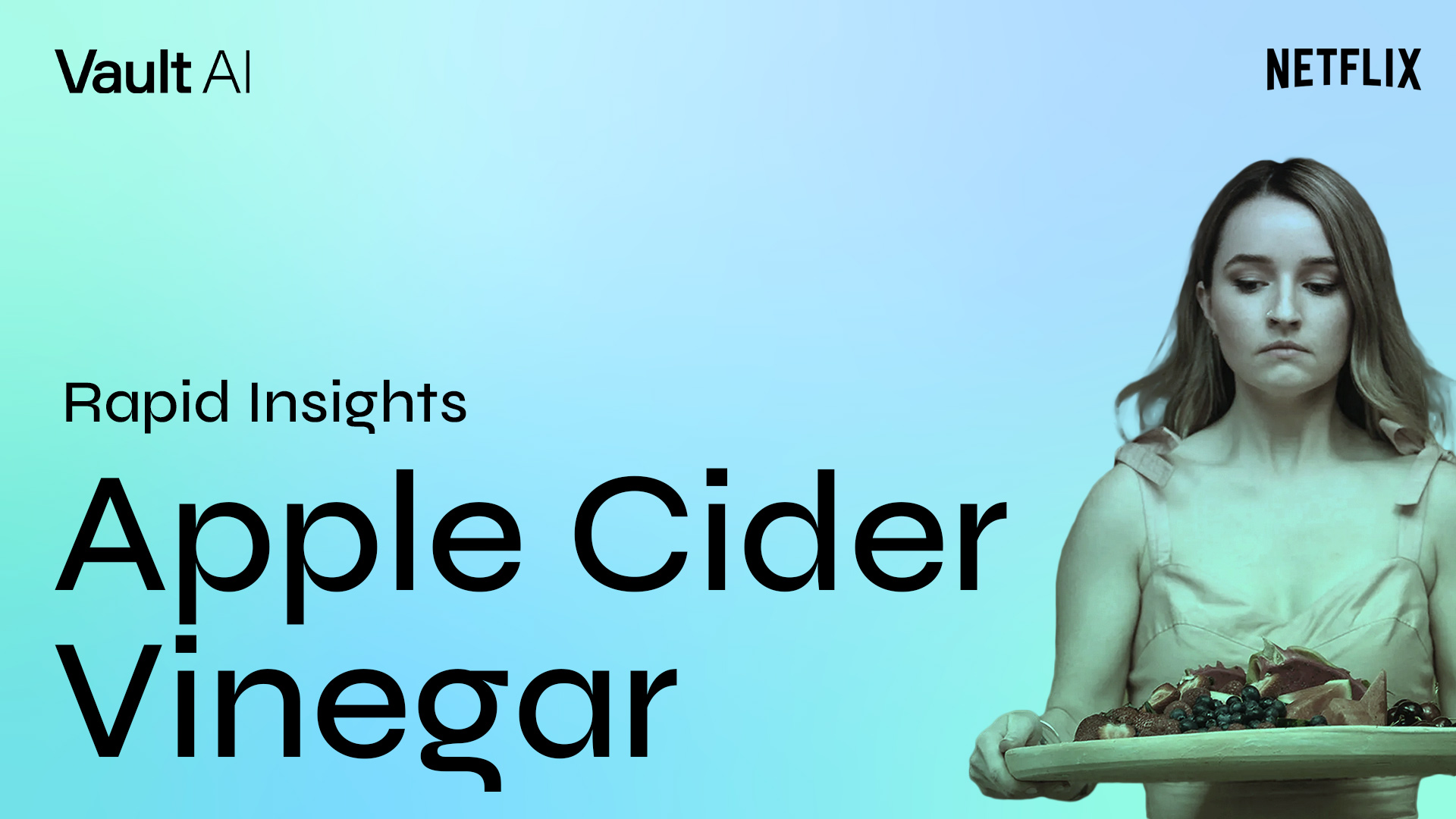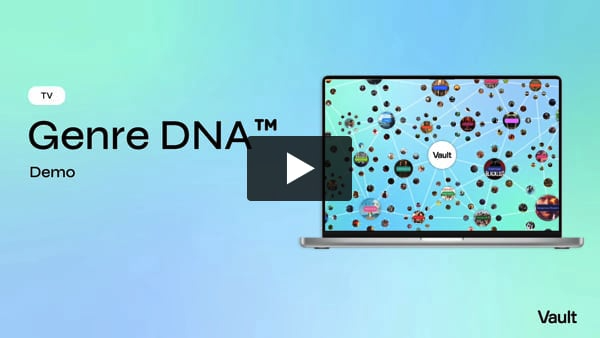Rapid Insights: ‘Apple Cider Vinegar’ Explores How True-Con Blends Fact, Fiction, and Frenzy

Netflix just released a buzzy new limited series that fits right into the modern trend of dramatizing real-life cons and scams. Joining the likes of Inventing Anna, The Dropout, and The Thing About Pam, this new show tells the story of Belle Gibson, an Australian wellness influencer who faked a battle with cancer to promote her own brand of alternative medicine.
Here’s what you need to know about Apple Cider Vinegar:
Vault AI uses index scores to describe the impact a given story/theme/element will have on specific KPIs:
≤79 Disappointing 80-89 Challenging 90-109 Average 110-119 Promising 120+ Outstanding
Is there a common audience for this type of true-con drama?
Sort of. The most notable examples of this microtrend–Apple Cider Vinegar, Inventing Anna, The Thing About Pam, Dirty John–tend to focus on female scammers or their female marks, and so their audience tends to be mostly women (64-70%). The Dropout, which details Elizabeth Holmes’ run at Theranos, is the major exception, reaching a gender-balanced viewership (50% men / 50% women). In addition, while all skew heavily toward those 30+, the social media connection of Apple Cider Vinegar appeals to a slightly younger audience (63%) than its genre brethren (69-80%).
How important is the con in attracting viewers?
Very. The real-life Scams (131, Apple Cider Vinegar), hidden Secrets & Lies (128, Inventing Anna), and Betrayals (121, Dirty John) perpetrated in each of these cases–capped off by their resulting media Scandals (127, The Dropout)–are top drivers of viewership for their respective series. This aspect of the plot, as well as the fact that they’re all Based on True Stories, particularly contributes to bingeability, with audiences watching eagerly to see how each scammer gets caught.
What’s the opportunity for social buzz within this microgenre?
Extremely high. The Thing About Pam, The Dropout, and Inventing Anna all maxed out our social buzz meter (to 160) for a sustained period during their initial runs, with Anna in particular demonstrating robust staying power. The outrageous nature of these scams tends to get people talking, and their prolonged online chatter keeps interest high. So far, Apple Cider Vinegar is mimicking the pattern set by Inventing Anna: a sharp rise in buzz immediately after release that has yet to waver many days later.
What sets Apple Cider Vinegar apart from these similar shows?
Its all-too-relevant cultural commentary. In delving into the world of cancer patients (Illness, 145) and treatments (Medical Procedures, 133), the show not only skewers the dubious credibility of modern social media and its self-styled wellness influencers, but also the medical establishment that fails to treat patients like human beings. Belle Gibson uses fraud to gain Social Status (124) and wealth via social media app (Gizmos & Technology, 117), but her Selfishness (119) and Moral Corruption (111) have lethal consequences as her followers adopt her worthless health advice. At the same time, the show is sympathetic to the desperate women who turn to her channel when they feel unsupported and dismissed by their mainstream doctors.
How does Australians’ interest in this series differ from Americans’?
The social media aspect isn’t a driver. While audiences Down Under are as invested as Americans in Apple Cider Vinegar’s portrayal of their own local scam artist (Antihero, AU 133) and the real-life Scandal (AU 137) she perpetrated, they’re not as captivated by the venue of her fraud. Belle Gibson’s burning desire for Social Status (AU 40) via social media apps (Gizmos & Technology, AU 40) only registers in the “disappointing” range in Australia, far below the level of interest shown in the US.
Most Popular Rapid Insights
Redefine your understanding of TV subgenres
Introducing Genre DNA™ – TV subgenres redefined by groundbreaking AI analysis to reveal the true drivers of viewership.
See the insights that others can’t
Genre DNA™ goes beyond traditional TV genre classifications by analyzing over 1,000 scripted and unscripted series on both linear and SVOD platforms from the last 5 years.
Each Vault Genre DNA™ report offers a precise analysis of your chosen TV subgenre, uncovering its unique drivers of viewership.
*Publicly released trailers for series are evaluated using Vault’s algorithms – utilizing our proprietary 120K+ story element database alongside viewership performance and other datasets – to identify unique combinations of stories, themes, characters, and genre elements that will drive success.
